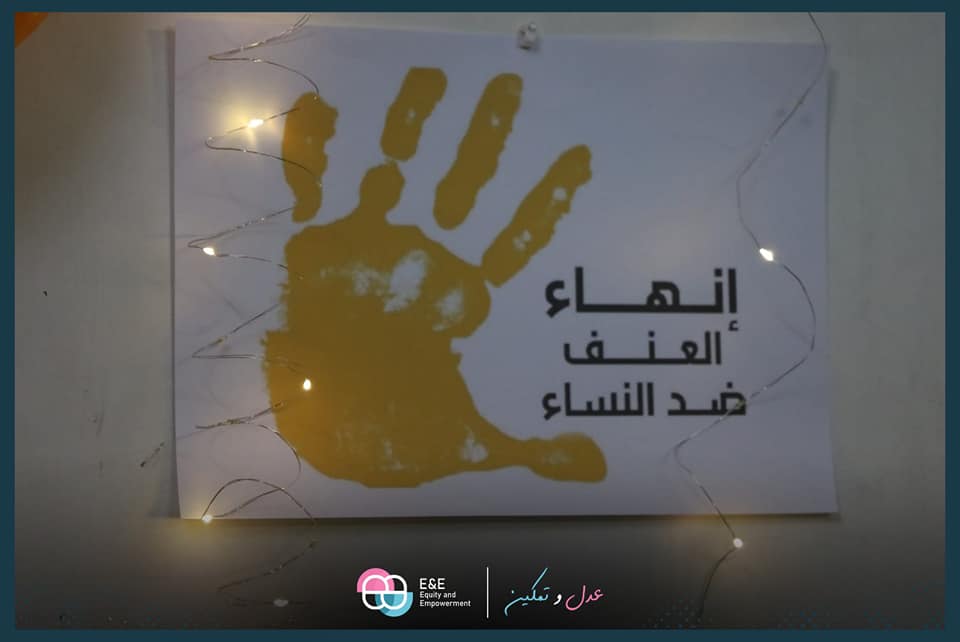
As part of the 16 Days Campaign to combat gender-based violence (GBV), Equity and Empowerment organized an awareness session at the Adl Center focused on GBV and the various forms of violence against Syrian women.
The session covered the definition of GBV, its different forms, and the social and cultural factors that contribute to it. It also explored how gender discrimination reinforces this violence. The psychological, physical, and social impacts on survivors were discussed, along with the economic effects on society as a whole. Additionally, the role of laws and legislation in combating GBV was addressed.
The sessions provided safe spaces for survivors to share their stories and experiences, as well as to better understand their needs.
The 16 Days Campaign against Gender-Based Violence is an annual initiative starting on November 25, the International Day for the Elimination of Violence against Women, and lasting until December 10, Human Rights Day. The campaign aims to raise awareness of GBV and strengthen global efforts to eradicate it. It includes awareness activities and community initiatives that focus on empowering women and girls and supporting survivors of violence.
On November 25, 1960, the three Mirabal sisters—Patria, Minerva, and María Teresa—were killed by the police in the Dominican Republic. These political activists opposed the brutal, systematic violence of the country’s dictator. The Mirabal sisters became symbols of feminist resistance. In 1980, the UN declared November 25 a day to end violence against women in Latin America. The UN officially recognized this International Day in 1999.
According to UN statistics, 40% of women worldwide have experienced gender-based violence at some point in their lives, with the rate increasing during times of crisis. Furthermore, more than two-thirds of women who experience violence are unable to access help.
The first step toward eliminating GBV is encouraging women to raise their voices and working through women’s organizations to amplify those voices. Supporting feminist institutions and enhancing their work is essential.
Empowering women through training, campaigns, and raising awareness of the forms and dangerous effects of violence on women is a crucial part of this journey.
As part of the 16 Days Campaign to combat gender-based violence (GBV), Equity and Empowerment organized an awareness session at the Adl Center focused on GBV and the various forms of violence against Syrian women.
The session covered the definition of GBV, its different forms, and the social and cultural factors that contribute to it. It also explored how gender discrimination reinforces this violence. The psychological, physical, and social impacts on survivors were discussed, along with the economic effects on society as a whole. Additionally, the role of laws and legislation in combating GBV was addressed.
The sessions provided safe spaces for survivors to share their stories and experiences, as well as to better understand their needs.
The 16 Days Campaign against Gender-Based Violence is an annual initiative starting on November 25, the International Day for the Elimination of Violence against Women, and lasting until December 10, Human Rights Day. The campaign aims to raise awareness of GBV and strengthen global efforts to eradicate it. It includes awareness activities and community initiatives that focus on empowering women and girls and supporting survivors of violence.
On November 25, 1960, the three Mirabal sisters—Patria, Minerva, and María Teresa—were killed by the police in the Dominican Republic. These political activists opposed the brutal, systematic violence of the country’s dictator. The Mirabal sisters became symbols of feminist resistance. In 1980, the UN declared November 25 a day to end violence against women in Latin America. The UN officially recognized this International Day in 1999.
According to UN statistics, 40% of women worldwide have experienced gender-based violence at some point in their lives, with the rate increasing during times of crisis. Furthermore, more than two-thirds of women who experience violence are unable to access help.
The first step toward eliminating GBV is encouraging women to raise their voices and working through women’s organizations to amplify those voices. Supporting feminist institutions and enhancing their work is essential.
Empowering women through training, campaigns, and raising awareness of the forms and dangerous effects of violence on women is a crucial part of this journey.